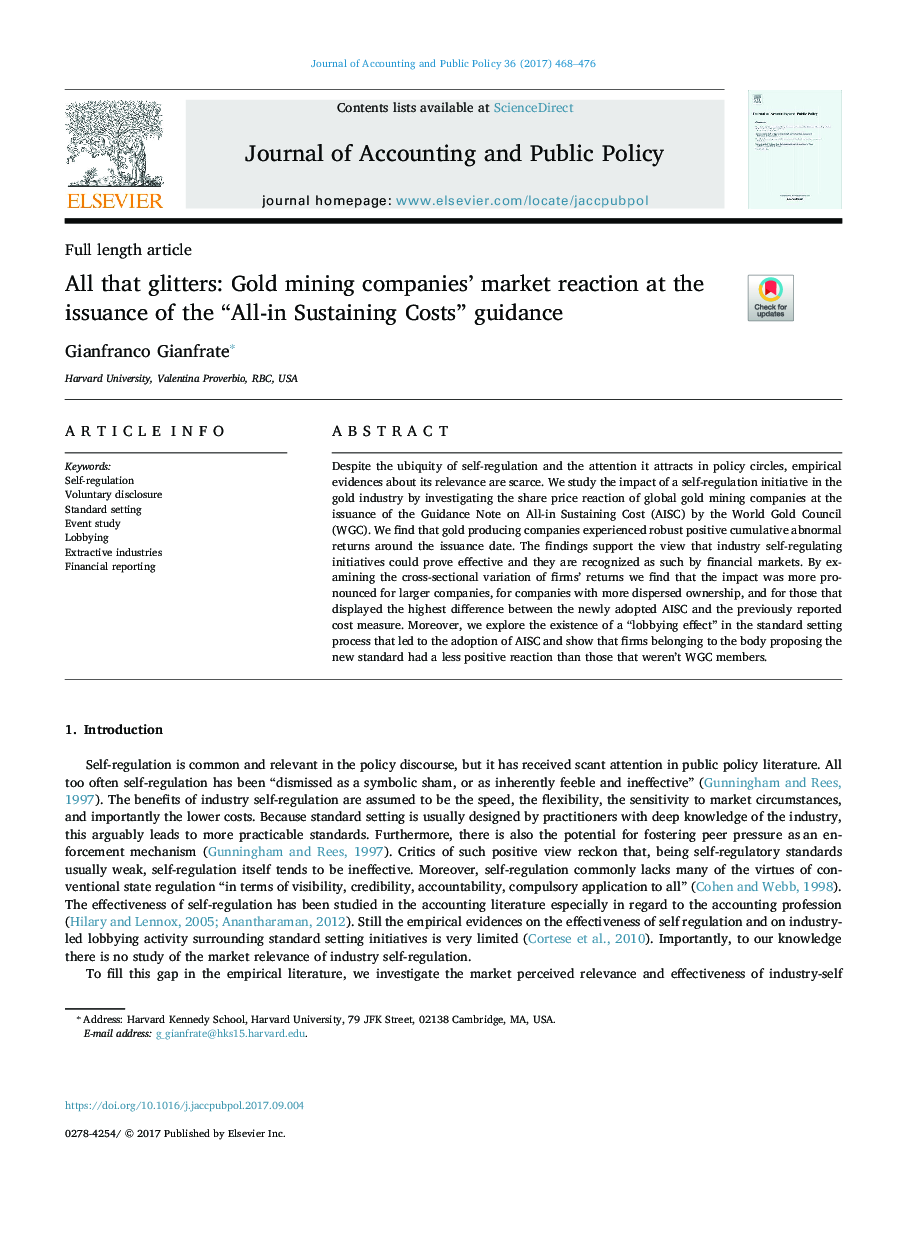| Article ID | Journal | Published Year | Pages | File Type |
|---|---|---|---|---|
| 7415881 | Journal of Accounting and Public Policy | 2017 | 9 Pages |
Abstract
Despite the ubiquity of self-regulation and the attention it attracts in policy circles, empirical evidences about its relevance are scarce. We study the impact of a self-regulation initiative in the gold industry by investigating the share price reaction of global gold mining companies at the issuance of the Guidance Note on All-in Sustaining Cost (AISC) by the World Gold Council (WGC). We find that gold producing companies experienced robust positive cumulative abnormal returns around the issuance date. The findings support the view that industry self-regulating initiatives could prove effective and they are recognized as such by financial markets. By examining the cross-sectional variation of firms' returns we find that the impact was more pronounced for larger companies, for companies with more dispersed ownership, and for those that displayed the highest difference between the newly adopted AISC and the previously reported cost measure. Moreover, we explore the existence of a “lobbying effect” in the standard setting process that led to the adoption of AISC and show that firms belonging to the body proposing the new standard had a less positive reaction than those that weren't WGC members.
Keywords
Related Topics
Social Sciences and Humanities
Business, Management and Accounting
Accounting
Authors
Gianfranco Gianfrate,
